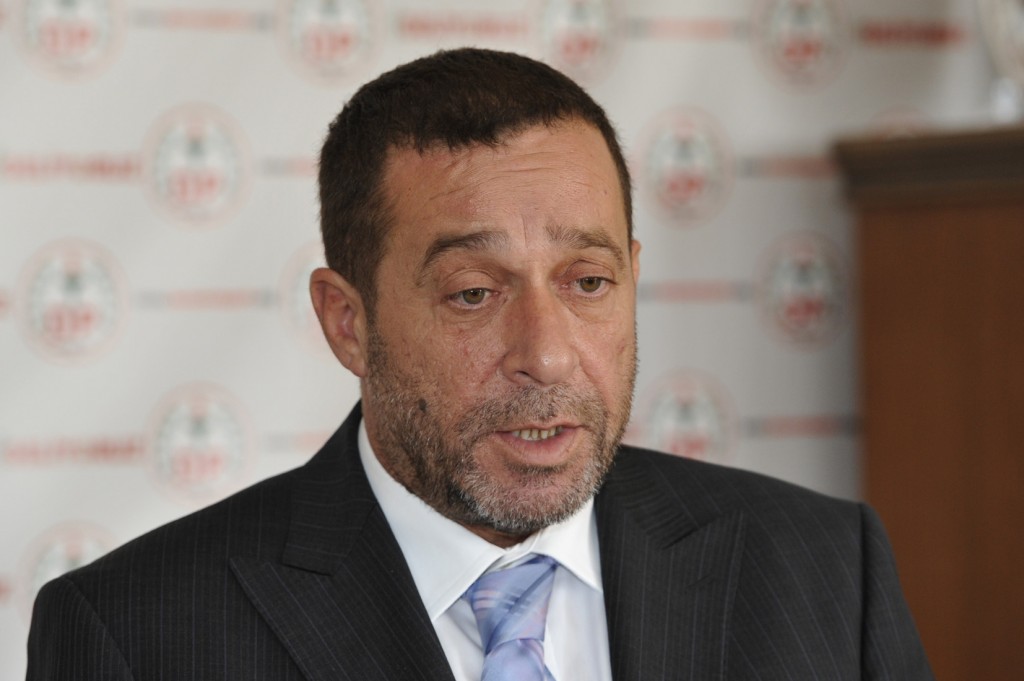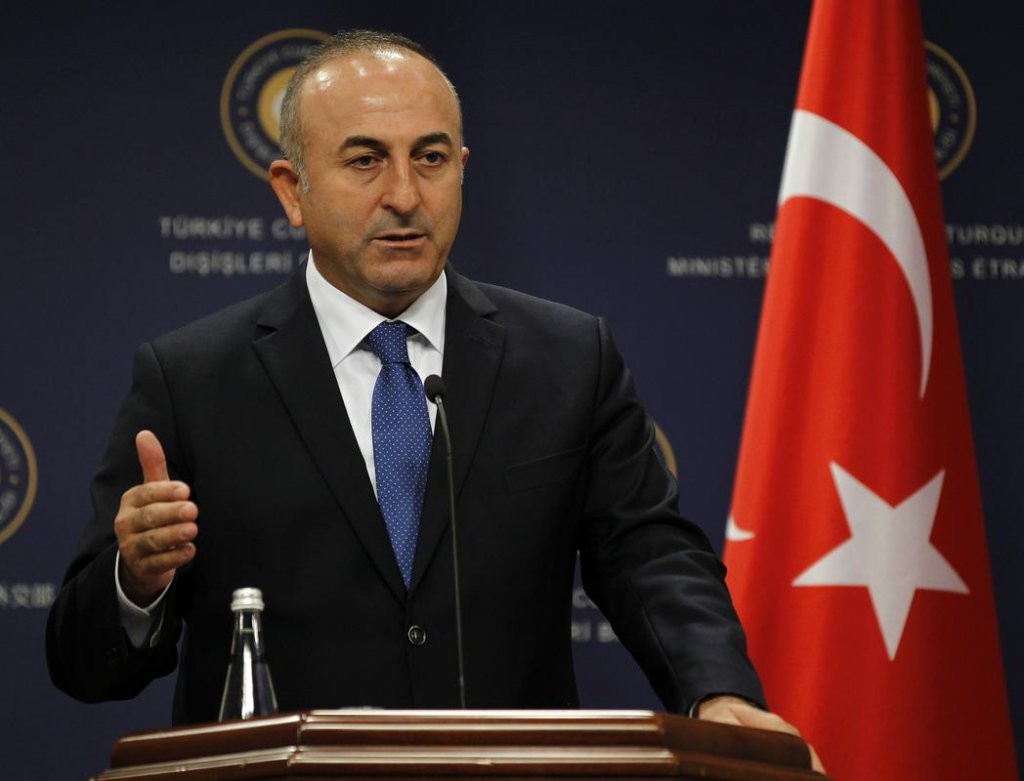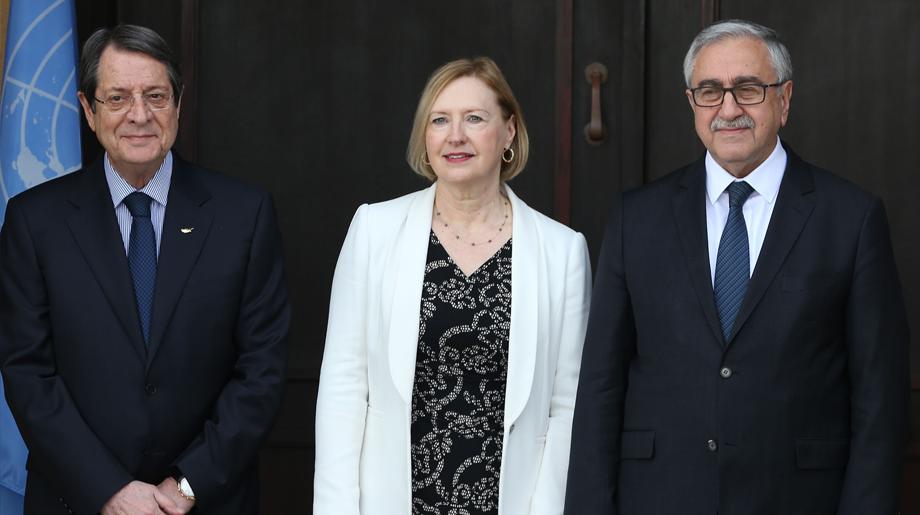Measures aimed at bringing Greek Cypriots and Turkish Cypriots closer together were set in motion this week – as South Cyprus said that it had made a new discovery of natural gas.
Plans to enable people in Cyprus to use their mobile phone lines on both sides of the divide will now be implemented, four years after they were first revealed, it was announced on Tuesday.
The confidence-building measure (CBM) decision was taken by Turkish Republic of Northern Cyprus (TRNC) President Mustafa Akıncı and Greek Cypriot leader Nicos Anastasiades during their first meeting for four months.
At present Cypriots with a phone line from their local providers – KKTCell and Vodafone-owned Telsim in the TRNC and Cytamobile-Vodafone, Primetel or MTN in South Cyprus – lose their signal when crossing the border. Those who make frequent trips have resorted to paying for two phone numbers to ensure they stay connected. In contrast international visitors are able to use their “home” sim cards on networks across the island.
In May 2015 Mr Akıncı and Mr Anastasiades said that they wanted the issue of “mobile telephone interoperability” to be “solved”. Attempts were scuppered, however, by Greek Cypriot concerns over cooperating with “unrecognised operators” and ultimately the collapse of marathon talks in Switzerland to solve the Cyprus Problem in July 2017.
Since July 2018 American diplomat Jane Holl Lute, appointed by UN Secretary-General Antonio Guterres as a “temporary” envoy to Cyprus, has been trying to assess if the two sides are willing and ready to restart official negotiations.
In Tuesday’s meeting, hosted in the buffer zone by the island’s top United Nations official Elizabeth Spehar, the men agreed to put the mobile phone issue back on the agenda as part of efforts to “improve the daily lives of all Cypriots”.
“The two leaders decided to implement the confidence-building measure regarding mobile phone interoperability through separate agreements of the operators on both sides with a hub based in Europe, in order to facilitate greater interaction between the two communities,”a statement from a UN spokesperson said.
A formula to finally enable direct mobile communications across Cyprus appears to have been reached in talks between the two leaders in Nicosia on 26 Feb. 2019

Mr Akıncı, speaking at a press conference on his return from the meeting, explained that mobile operators will have to sign “separate agreements” with a “centre” that “could be based in Luxembourg or Switzerland”. He added that the “relevant technical committee” will continue its “facilitation” of the move, although no timeframe for its implementation was given.
The pair also revealed that the “interconnectivity” of the island’s two electricity grids – another measure announced in 2015 – has “now been achieved”.
Mr Akıncı and Mr Anastasiades agreed to the clearance of nine zones suspected of containing land mines with a “view to working towards a mine-free Cyprus”. They also decided to exchange “invaluable works of art” as a “goodwill gesture”.
Additional “potential confidence-building measures” were also discussed during the “cordial” meeting, the UN said, with Mr Anastasiades presenting his ideas on “decentralisation”.
The term refers to Mr Anastasiades’s desire for a weaker central government in any new federal Cyprus, an idea viewed with suspicion by some Turkish Cypriots who see it as a ruse to curb their political rights.
“He [Mr Anastasiades] talked about which of the competencies should remain with the central government but refrained from going into the details of which ones should be transferred to the constituent states,”President Akıncı told reporters.
A statement from the UN Security Council issued on Wednesday said it “welcomed the progress made by the two leaders” but called on them to “put their efforts expeditiously behind further work on reaching convergences on the core issues, stressing that the status quo is unsustainable.”
North Cyprus Deputy Prime Minister and Minister of Foreign Affairs Kudret Özersay said he hoped the CBMs would pave the way for cooperation in more controversial areas, such as efforts to exploit potential offshore resources, and the exchange of criminals.
A statement from the Republican Turkish Party, the main party in the TRNC’s coalition government, said it welcomed the CBM announcement and that it will “continue to support such moves aimed at building and creating trust between the two sides”.
Serdar Denktaş claims the talks are a “waste of time”
In contrast Finance Minister and Democrat Party leader Serdar Denktaş claimed that a new round of negotiations would be a “waste of time” and said that the meeting between Akıncı and Anastasiades should not have taken place.
“Negotiations aimed at reaching a bizonal, bicommunal federation have been held for decades,” he said during an interview with TRNC state broadcaster BRT.
“The Annan Plan was rejected [in 2004] and [the negotiations in] Crans Montana [in Switzerland in 2017] collapsed because of the Greek Cypriots.
“What is there left to talk about? What is it that we have still not understood?”

Main opposition National Unity Party (UBP) leader Ersin Tatar meanwhile called for a “two-state solution” for Cyprus.
“President Mustafa Akıncı should not get caught up in the Greek Cypriot side’s delaying tactics and games,” he said in a written statement.
“I am urging him to bring to the agenda of the UN, and other international actors involved in the Cyprus Problem, the option of a two-state solution which the majority of the Turkish Cypriot people and the TRNC Parliament supports.”
Mr Tatar added that the Greek Cypriot side was “still imposing unjust embargoes on Turkish Cypriots, usurping their rights and excluding them from the hydrocarbon equation”.
On Thursday the Greek Cypriot administration announced that a “natural gas-bearing reservoir of excellent quality” had been found by America’s ExxonMobil and Qatar Petroleum in an area to the south-west of Cyprus.
 The companies have been carrying out exploration on behalf of South Cyprus in Block 10 of the Greek Cypriots’ unilaterally declared “exclusive economic zone”.
The companies have been carrying out exploration on behalf of South Cyprus in Block 10 of the Greek Cypriots’ unilaterally declared “exclusive economic zone”.
“On February 17, 2019, the ‘Glaucus-1’ well reached a final drilling depth of 4,200 metres below sea level, in 2,063 metres of water,” a statement said.
“A discovery of 133 metres natural gas-bearing reservoir of excellent quality has been made, which based on preliminary analysis is estimated to represent in place quantities of natural gas of five to eight trillion cubic feet (Tcf).”
The statement said that “further evaluation work” would take place in the coming months to“better determine the quantity of natural gas”.
ExxonMobil Exploration Company president Steve Greenlee said the results were “encouraging”.
The latest developments in Cyprus come as Turkey flexes its military muscles with the “largest naval drill in its history”. The four-day ‘Blue Homeland 2019’ exercise began on Wednesday with the participation of more than 100 ships in the Black Sea, the Aegean and the Eastern Mediterranean, according to Turkish media reports.

The show of strength comes amid ongoing concerns by Turkey and the TRNC over the Greek Cypriots’ attempts to exploit offshore hydrocarbons without a political settlement. The two countries have vowed to start their own drilling operations in response.
“We are starting exploration in the coming days with two ships around Cyprus,” Turkish Foreign Minister Mevlüt Çavuşoğlu was reported to have said last week.
“It should be observed that nothing can be done in that region without us. Those companies that come to that region from far away should realise this.
“We will not permit anything to be done in the Mediterranean without Turkey.”
Main photo, top (L-R): Nicos Anastasiades, Elizabeth Spehar, & Mustafa Akıncı before a meeting in the buffer zone, 26 Feb. 2019. Photo © Twitter/CyPresidency




